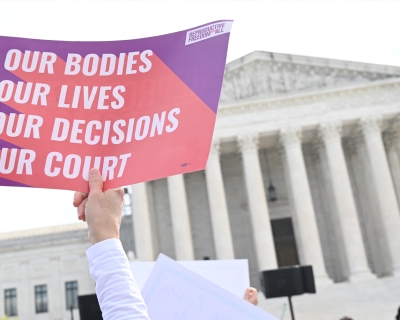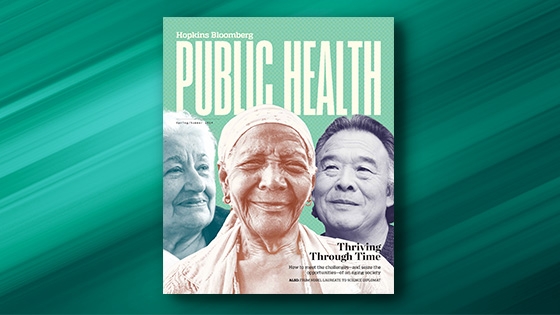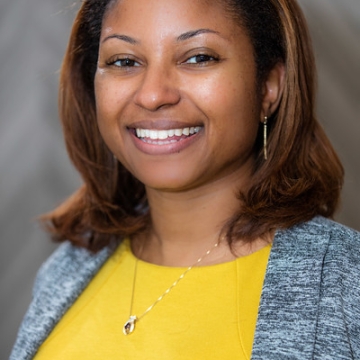From COVID to crowd control: Preparing for the 2024 Paris Olympics
Planning for this mass gathering event begins years in advance and draws on health security lessons learned from past events.
Listen to the podcast Read the Q&A Learn more about The Center for Health Security
Headlines

Violence Prevention Researchers Release Toolkit Aimed at Establishing Violence Reduction Councils in Local Communities to Save Lives
Violence reduction councils bring community groups together to prevent violence, meet unique needs of community.

Extreme Heat Hazards
Increasingly frequent extreme heat days are putting more people’s health at risk.

The Problem with Pulse Oximeters: A Long History of Racial Bias
How did a racially biased medical device become the standard of care—and what’s being done to fix it?

Important Abortion Cases in a Holding Pattern Following SCOTUS Decisions
The court upholds the status quo for now, but reproductive law experts expect mifepristone and EMTALA to be litigated again in the future.

Supreme Court Upholds Domestic Violence Gun Ban: Implications for the Second Amendment and Survivors of Domestic Violence
The Supreme Court upheld a federal statute prohibiting individuals subject to domestic violence protective orders from possessing firearms.

Abortion Bans and Infant Deaths
The year after Texas passed its restrictive abortion law, infant deaths in the state increased.
Hopkins Bloomberg Public Health Magazine
The School's award-winning magazine, Hopkins Bloomberg Public Health, takes readers inside the most important issues of public health by covering the science, the scientists, and the people who can most benefit by advances in health.

Subscribe to Stay Informed
Our Academic Program Offerings
Our programs welcome those from within and outside the traditional boundaries of public health. Whether you're a future college graduate, a midcareer public health leader, or someone looking to make a career change, we have a program for you.

Master of Public Health (MPH)
The Master of Public Health (MPH) is our most flexible degree. With 12 concentrations to choose from, students can tailor their degree to their unique goals while completing classes at their own pace on campus, fully online, or a mix of the two.
We are accepting applications for the online/part-time format starting in November 2024 or January 2025.
Master of Science in Public Health (MSPH)
The Master of Science in Public Health (MSPH) is a professional degree alternative to the Master of Public Health (MPH) degree for students who want more focused skills in a specific field of public health or who lack two years of health-related work experience to begin or advance a career as a public health professional. MSPH programs generally require one academic year of coursework, followed by a field placement. The field placement duration and location vary by department/concentration.

Why Choose the Johns Hopkins Bloomberg School of Public Health?
#1
Ranked by U.S. News & World Report since 1994
1st
and Largest School of Public Health
1,800+
Courses Offered
80+
Research Centers and Institutes
27K+
Alumni Living in over 160 Countries
90+
Degree Programs
40
Certificate Programs
4:1
Student-to-Primary-Faculty Ratio
Meet Our Faculty
Our faculty are world-renowned experts, and trusted advisers to our students, public health leaders, and the public.

Radhika Raghunathan, MSPH '16, PhD '20, examines multilevel and longitudinal processes influencing children’s social, emotional, and behavioral well-being, and antecedents of mental health disorders.

Anju Malhotra, PhD, connects research with practice to shape smart, scalable strategies for advancing gender equality in health, education, & opportunity in the global South.

Tara Taylor, MPH ‘12, designs multicenter clinical trials to study functional, psychological and surgical outcomes to improve orthopedic injury and trauma patients’ care.

Martin Lindquist, MSc, PhD, works on mathematical and statistical problems relating to neuroimaging with a particular focus on functional Magnetic Resonance Imaging (fMRI) data.
Join Us in Baltimore
Pursue a degree at the #1 school of public health in one of America's best cities. With 50+ museums, a bustling restaurant scene, gorgeous parks, and more, Baltimore is a great place to study and live.
Support Our Work
Our work is made possible in part by contributions from Bloomberg School donors.
